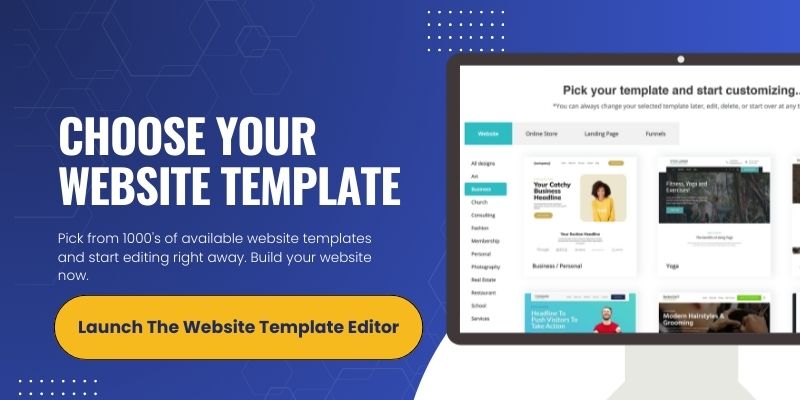Eye-Catching Design
Layouts Matter
When it comes to vacation rental websites, the layout can make or break your success. A well-structured layout helps guests navigate effortlessly. Personally, I’ve found that using a grid layout for listings gives potential renters a clear view of their options. It keeps things organized and lets them imagine their next getaway!
Moreover, you want to use ample white space. It might sound basic, but trust me when I say that cramming too much information can confuse your users. I remember when I launched my first website; I tried to showcase every detail about the rentals all at once. Bad move. Less is sometimes more!
In addition, consider using high-quality images. The rule of thumb here is to let stunning visuals do the talking. Invest in good photography to showcase the best features of your rentals, as images can create an emotional pull that might just convince a visitor to book.
Responsive Features
Mobile Optimization
In today’s world, everyone is on their phone. I’ve experienced it firsthand; more people browse vacation rentals on their mobile devices than ever before. That’s why ensuring your website is mobile-friendly is not just a luxury—it’s a necessity. When I revamped my site, I ensured that it was super responsive. It was a game-changer.
What do I mean by responsive? Well, your website should adjust its layout, images, and functionalities based on the device being used. If I can’t nail that aspect, then frankly, my site is snoozing on the job. I always recommend testing the mobile version continuously to see how it feels for users.
Also, consider the speed of your site. No one wants to wait ages for a page to load. Seriously, if a page takes longer than three seconds, users might just bounce. I had to optimize images and minimize unnecessary scripts to ensure fast loading times, and it definitely paid off!
User-Friendly Navigation
Menu Structure
Here’s the deal: your website needs to feel like a warm hug—a cozy space where visitors can easily find what they need. One of the biggest lessons I learned was to streamline my menu structure. I opted for a simple top navigation bar, including just the essentials like ‘Home,’ ‘Listings,’ and ‘Contact Us.’
Don’t underestimate the power of dropdown menus either. They can keep the main page tidy while still providing access to plenty of information. When I added this feature, I noticed users spent more time exploring my site instead of getting frustrated and leaving.
Lastly, facilitate a browsing experience that feels intuitive. Use familiar language and terms that potential guests can relate to—like ‘Vacation Homes’ instead of ‘Property Listings.’ It makes a world of difference in keeping users engaged!
Booking System Integration
Simplifying Reservations
When I first started, the booking process of my site was a complex labyrinth—it was way too easy for users to get lost or frustrated. Therefore, I knew I needed a system that could streamline the reservation process. Automating bookings not only lightens your workload but also offers instant gratification to your guests.
Consider integrating a calendar showing availability, which is super handy. Guests appreciate knowing when they can book without having to dig through a ton of inquiries. I partnered with a reliable booking management system, which integrated seamlessly with my website, and it has saved me countless headaches.
Finally, don’t skimp on the payment options. Everyone has preferences, and I can’t emphasize enough how crucial it is to offer diverse payment methods. Whether it’s credit cards, PayPal, or other emerging payment options—the simpler you make it, the more bookings you’ll snag.
SEO Optimization
Search Engine Visibility
Let’s talk about search engines! If people can’t find your website, it doesn’t matter how pretty it looks. I learned the hard way that ignoring SEO is like throwing a party no one knows about. Optimizing your site goes beyond just including keywords; it’s about making your content valuable to users.
I began by doing some keyword research to find out what potential guests were searching for. Once I had those golden phrases, I incorporated them naturally into my web content. Also, optimizing meta tags and descriptions helped my site rank higher on search engine results, making that sweet traffic flow in.
Lastly, don’t forget about quality content. Regularly blogging about local attractions, travel tips, and experiences will not only boost SEO but also connect with your audience on a personal level. Sharing local secrets can make your website a go-to for future travelers!
Engaging Content
Storytelling Techniques
When it comes to capturing hearts—or at least the attention of potential renters—storytelling is where it’s at. Sharing personal experiences or highlighting unique features of each property can create an emotional connection. I noticed a distinct increase in interest when I started sharing stories about the cozy fireside gatherings my guests could enjoy.
Additionally, video content can also be a game changer. You’d be surprised how much more effective a quick virtual tour can be in immersing potential guests. I started making short and fun videos showcasing not just the properties but the surrounding neighborhoods. It made them feel like they weren’t just booking a stay; they were planning an adventure!
Finally, consider including testimonials or guest reviews. Authentic feedback is gold—it can turn skepticism into enthusiasm. Featuring a few heartfelt testimonials on your site has brought in more bookings than I could’ve imagined.
FAQ
What should I prioritize when designing my vacation rental website?
The most important aspects to prioritize are an eye-catching design, mobile responsiveness, user-friendly navigation, a reliable booking system, SEO optimization, and engaging content. Focus on creating a delightful user experience!
How can I make my website mobile-friendly?
To make your website mobile-friendly, choose a responsive design template that adjusts to different screen sizes. Make sure your images are optimized for quick loading, and keep your content concise to ensure visitors can easily navigate on smaller screens.
Why is an integrated booking system important?
An integrated booking system streamlines the reservation process for both you and your guests. It automates tasks, provides instant booking confirmation, showcases availability, and can enhance customer satisfaction and retention.
How can SEO improve my vacation rental website?
SEO enhances your website’s visibility in search engines, making it easier for users to find you. By employing proper keywords, optimizing your content, and regular updates, your website can rank higher, leading to increased traffic and potential bookings.
What type of content should I include on my website?
Include engaging content that tells stories about your properties, local attractions, and guest experiences. High-quality images, videos, and authentic guest reviews can also enhance visitor engagement and increase your chances of bookings.

